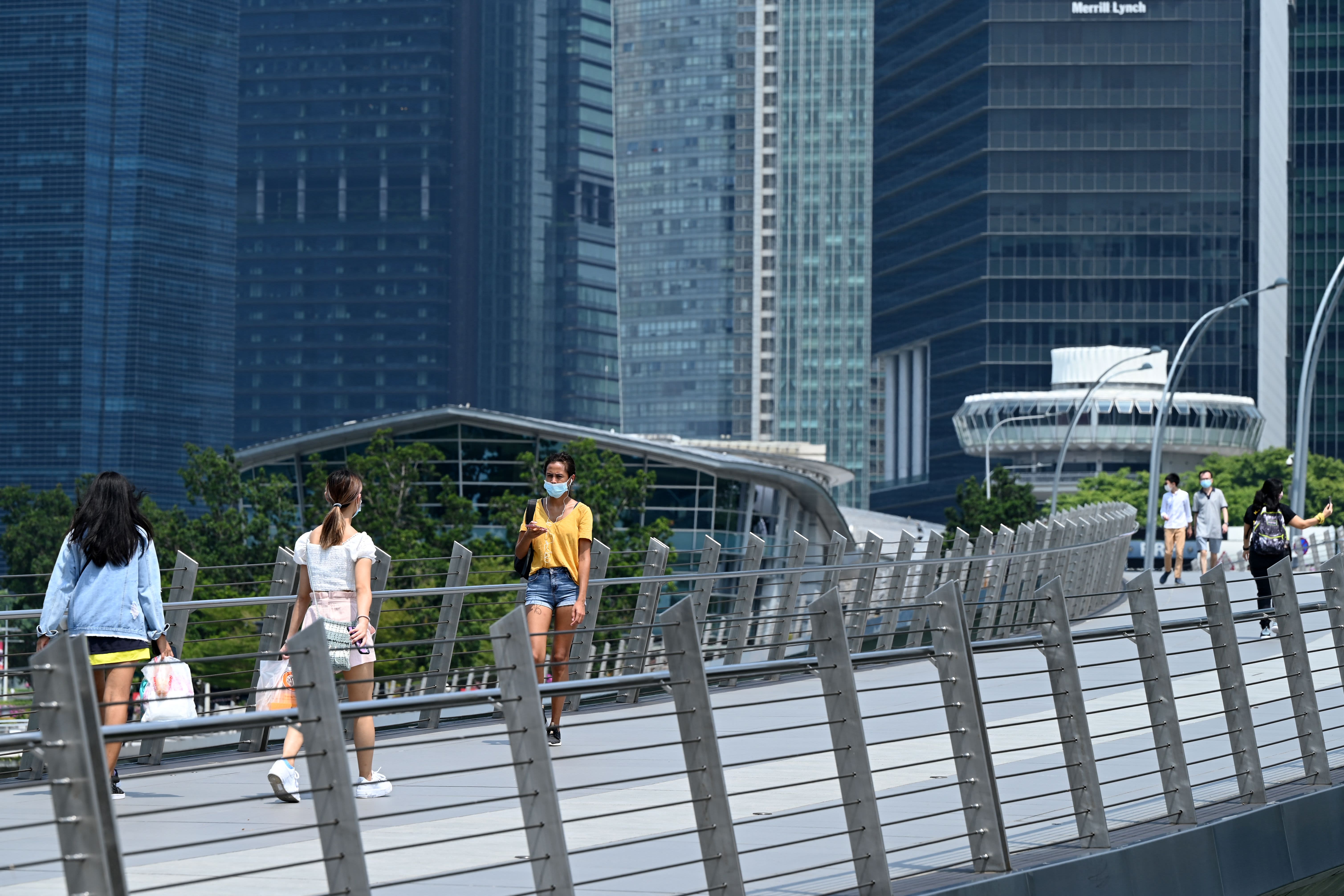Singapore (Singapore) — Singapore’s trade minister, Gan Kim Yong, told CNBC on Tuesday that the country plans to immunize 75 percent of its people by early October in order to gradually reduce border restrictions as the coronavirus becomes endemic. “In the future, Covid-19 is expected to become endemic. It is for this reason that immunization is so vital. Because transmission will continue, and as the virus mutates, you will encounter new variants from time to time,” Gan said on CNBC’s “Squawk Box Asia.”” He said the goal is to vaccinate at least two-thirds of the population by Aug. 9, which is Singapore’s National Day, which commemorates the island’s independence from Malaysia in 1965. As of July 3, roughly 37% of Singapore’s 5.6 million inhabitants had been fully vaccinated, according to data from the scholarly publication Our World In Data. It’s a much higher percentage than in more populated countries like Malaysia and Indonesia, where roughly 8% and 5% of their populations have been fully vaccinated, respectively. Vaccines, according to the minister, can help to control illness transmission and severity to some extent. This will prevent overcrowding in Singapore’s hospitals and medical facilities, allowing the country to “continue to live with Covid-19.” Pfizer and Moderna vaccines are used in Singapore’s official immunization program, although private clinics have been allowed to deliver Sinovac to people who prefer the Chinese-made vaccine. Reopening borders and creating travel corridors According to Gan, the vaccination rate will be a key indicator for reducing border restrictions and allowing non-resident passengers into Singapore. “By the end of September or early October, we want to have covered 75 percent or more of the population. At that point, we will be able to make a more significant move toward opening our borders to allow more tourists, both business and pleasure, to come to Singapore “Gan went on to say. So far this year, discussions on establishing transport corridors with countries like Hong Kong and Australia have yielded no concrete results. A quarantine-free air travel bubble agreement would have allowed persons from Hong Kong and Australia to travel to Singapore and vice versa. “We opted not to call it a travel bubble since it has a tendency to rupture,” Gan explained. “We will continue to do our best to talk to our partners, and the conversation is going well.” Singapore and its allies must be prepared for possible travel corridors by maintaining low illness rates and high immunization rates, according to Gan. He noted that the city-state intends to conduct trials in which vaccinated travelers would be allowed to travel between Singapore and a number of other countries. It will be done in small groups at first to test the process, and if it works, it will be ramped up to enable more tourists into the nation, according to Gan. “It will be critical for us to do so in a safe manner, to develop confidence, and to allow us to fine-tune our measures and processes to ensure that Singapore and our tourists remain safe,” he added. Restrictions are being eased even more. In May, Singapore tightened restrictions after a spike in domestically transmitted cases and the discovery of the highly contagious delta strain in the city-state. A restriction on dining in restaurants and food establishments, as well as a maximum of two individuals at public social gatherings, were among the harsh rules enacted. Some of those restrictions have now been relaxed as cases have remained under control, with only a few unrelated community illnesses recorded each week. We have always believed that a delicate balance must be struck between safeguarding lives on the one hand and preserving livelihood on the other. Gan Minister of Trade and Industry, Kim Yong “Even as we open up our economy and community, we need to be vigilant and cautious,” said Gan, who was the former health minister and is still the co-chair of Singapore’s Covid-19 taskforce. “We always feel that we need to strike a very careful balance between safeguarding lives on the one hand and sustaining livelihood on the other,” he said, adding, “This is to ensure that we can continue to keep public health under control, keep Singaporeans safe.” Singapore would allow in-person meals for up to five people starting July 12 if things continue to go well, according to Gan. Outside of residences, only two-person parties are permitted to dine together./n
Read MoreSingapore targets 75% vaccination so border restrictions can be gradually eased
2021-07-06T05:10:25-04:00July 6th, 2021|


